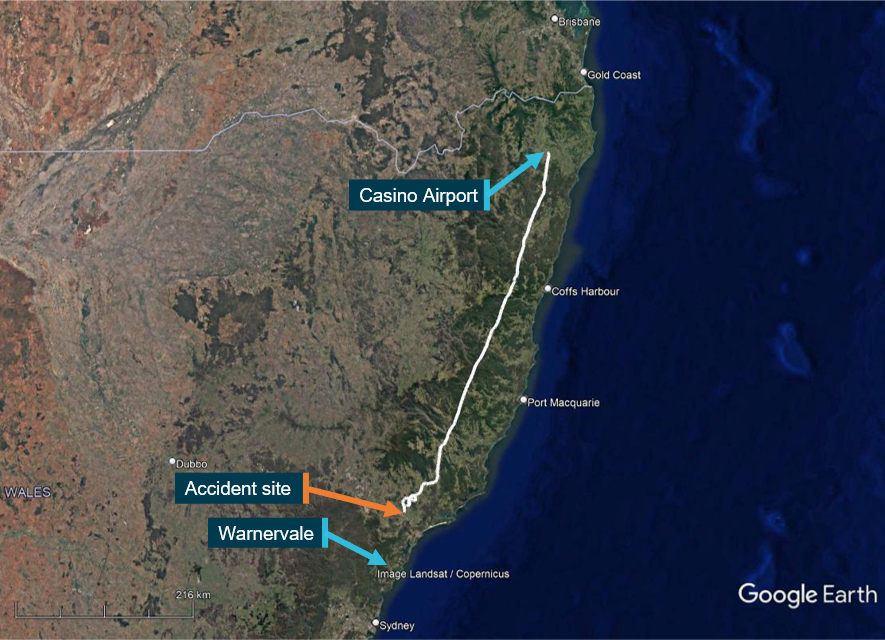
The Australian Safety Transport Bureau (ATSB) has released its preliminary report into its investigation into a fatal helicopter accident near Maitland in October this year.
On October 6, the pilot and sole occupant of the single-engine five-seat Bell 206 JetRanger was traveling from northern NSW to Warnervale on the Central Coast. About two-and-half hours into the flight the helicopter crashed on a muddy river flat at Maitland Vale.
The pilot was fatally injured and the helicopter was destroyed.
Initial investigations include eye-witness accounts of the helicopter heading towards the Hunter River, descending slightly and possibly initiating a turn when it then “rolled markedly and descended rapidly, colliding with the riverbank”.
ATSB investigators attended the scene and conducted an initial assessment of the aircraft in situ, before it was moved to higher ground for further examination due to rising water levels.
The preliminary report notes recorded data indicated the pilot was following the inland visual flight rules (VFR) lane west of Williamtown Airport when, approaching Tocal, the aircraft started to climb, and conducted a right 180‑degree turn.
“Data showed that over the next 20 minutes, the helicopter conducted a number of turns, a climb up to 3,100 ft, and a descent to around 120 ft above ground level, and exited and re-entered the VFR lane on a number of occasions,” ATSB Director Transport Safety Stuart Macleod said.
ATSB investigators were able to account for all major aircraft components at the accident site, and examination of the aircraft’s flight controls, engine and structure did not identify any pre-existing defects.
Bureau of Meteorology data for Maitland Airport 15 minutes before the accident reported 8 kt of wind with scattered cloud at 4,000 ft and 4,500 ft, and overcast cloud at 7,800 ft above the airport.
“To date, the ATSB has assessed the wreckage, interviewed witnesses and collected external data sources related to weather, air traffic communications, and flight tracking,”
“Moving forward, the investigation will include further review and examination of aircraft maintenance documentation and operational records, recorded data, weather information, air traffic communications, and the pilot’s medical records, qualifications, and experience,” said Stuart Macleod.
A final report will be released at the conclusion of the investigation.

